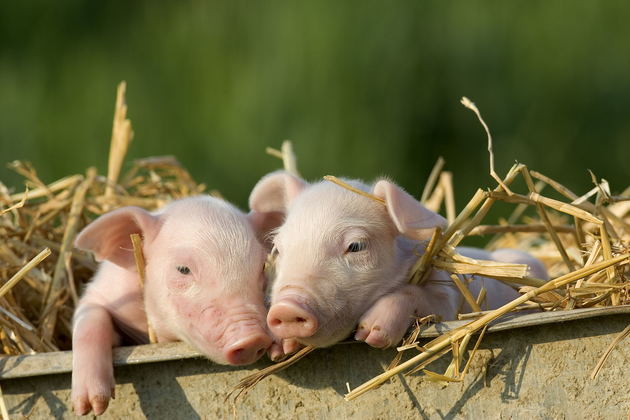
Photo/VCG
Nov.21 (NBD) -- Chinese online retailer JD.com is expanding its footprint to the traditional agricultural sector by launching a smart farming solution on its 2018 JD Discovery Conference held Tuesday in Beijing.
Based on AI, IoT and SaaS technologies, the solution offers a patrol robot, a feeding robot and an agricultural 3D camera, creating a fully interconnected animal husbandry industry chain.
Around half of the world's pigs are raised in China, and now pigs ready for sale amounts to 700 million in the country, noted Li Defa, professor at China Agricultural University and academician at the Chinese Academy of Engineering at the conference.
However, the cost of raising one pig in China is the same as that of two pigs in the U.S. Even if tariffs are shipping fees are added, the cost of pork imported from the U.S is still lower than that produced domestically, Li added.
With the help of the solution, each pig will get ready for sale 5-8 days earlier, reducing 30 percent of labor costs and 8-10 percent of feeds for large- and medium-sized pig farms, said Cao Peng, vice-president of JD Digits and general-manager of its tech research and develop department.
Based on incomplete statistics, at least 50 billion yuan (7.2 billion U.S. dollars) will be saved each year if the whole breeding industry in China adopts the solution.
So far, 4-5 out of the top 20 pig-farming companies have set up joint lab with JD.com, reported news outlet The Paper.
In fact, JD.com is not the first Internet company setting foot on pig-farming sector.
Back in 2009, NetEase announced its pig-farming plan with standardized production lines, eco-friendly feed and comfortable living environment for pigs. The business turns out well although some industry insiders were bearish on it at the very beginning.
Last December, Alibaba's cloud computing arm Alibaba Cloud launched ET Agricultural Brain for automation in pig farming, which is able to process data and algorithm models based on machine learning technology, allowing farm managers to monitor the farm and the animals in real time.
In comparison, the pig-farming business models of JD.com and Alibaba are similar. But will smart farming represent the future trend?
According to research reports provided by the Industrial Securities, the number of private and small pig farms are declining, which drives down pork supplies and paves way for standardized and scale pig farming as well.
It's noted that the market share of pig farms with an annual production of over 500 pigs has increased from 22 percent in 2007 to 51 percent in 2016.
In this case, technologies such as AI, IoT and big data will facilitate scale pig farming.
Email: tanyuhan@nbd.com.cn


 川公网安备 51019002001991号
川公网安备 51019002001991号





